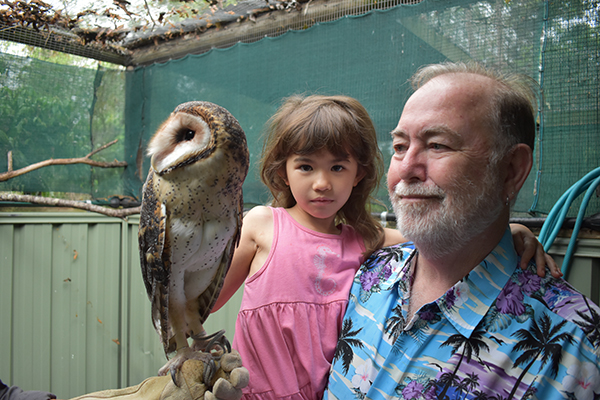Research
Grace Fulton, aged six, Australia’s youngest published scientist

Freya Lucas
Apr 16, 2020
Save
Striking a blow against low levels of participation of women in STEM, Australian scientist Grace Fulton, at six years of age has been participating in field research since age four, working with her father, University of Queensland scientist Graham Fulton, to capture critical data about owl species, including powerful, southern boobook, sooty and masked owls.
Mr Fulton said he was delighted to share his passion for protecting owls with his daughter, who began spending nights with her father in the rainforest from four years of age, searching for owls, and coming to identify them by their unique calls.Since that time, Grace has been travelling with her father all around Australia collecting data about what and where these birds are and what’s happening to their populations as habitats decline.
She’s listed as a lead author in a research article about the findings, which has been published in a peer-reviewed scientific journal, with her most recent research conducted at two sites, one close to her home in suburban Brisbane, and the other in the rainforests of Mount Glorious, outside the city.
 “Grace and I were keen to compare how forest owls and other nocturnal birds do in dense urban areas compared to leafy, wild places like Mount Glorious,” Mr Fulton said, saying it “came as no surprise” that there was a distinct lack of owls in the Brisbane suburbs.
“Grace and I were keen to compare how forest owls and other nocturnal birds do in dense urban areas compared to leafy, wild places like Mount Glorious,” Mr Fulton said, saying it “came as no surprise” that there was a distinct lack of owls in the Brisbane suburbs.Although much of Grace’s work so far has been focused on owls, she is curious about all sorts of species, with snakes being a particular interest, as well as the migration of butterflies across Brisbane.
“Ever since she was two-years-old she’s never stopped asking why, and I’m thrilled to help foster her curiosity about the natural world,” Mr Fulton said.
To read Grace’s research in full, please see here.
Don’t miss a thing
Related Articles



















